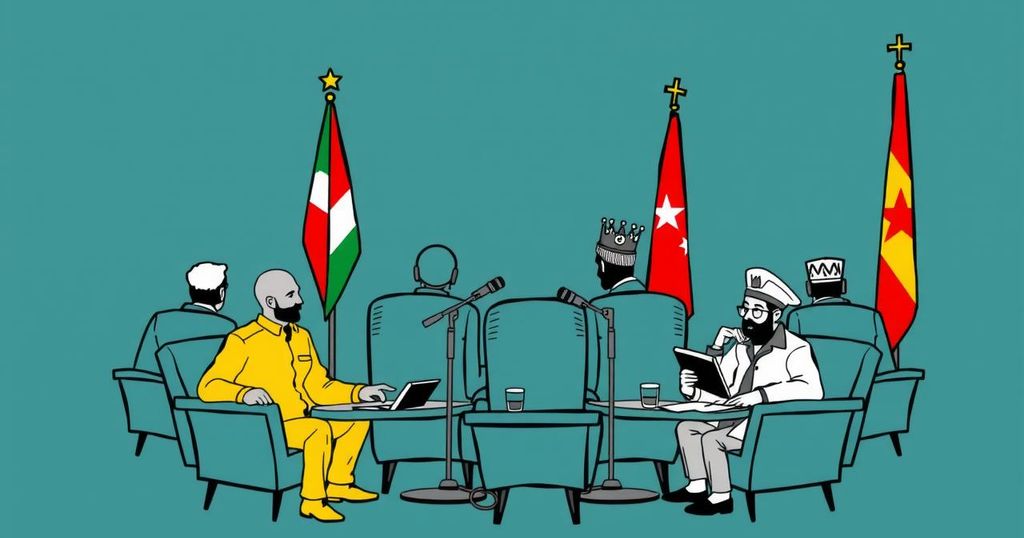President Felix Tshisekedi has announced plans to form a commission to draft a new constitution for DRC, aiming to remove the two-term limit for presidents. The proposal has faced backlash from various political factions, notably Kabila’s opposition, and raises concerns about the country’s stability.
The recent announcement by President Felix Tshisekedi regarding the establishment of a commission to draft a new constitution for the Democratic Republic of Congo (DRC) has sparked intense debate within the nation. During his visit to Kisangani, President Tshisekedi expressed his intention to appoint a diverse commission next year, aiming to create a constitution that acknowledges the realities of the DRC and does not obstruct governance. A critical aspect of this proposed amendment is the elimination of the two-term presidential limit, which would enable Tshisekedi to seek a third term in upcoming elections. Having already served two terms, he faces restrictions under the current law. This proposal echoes an earlier attempt made in 2015 by former President Joseph Kabila, which faced significant dissent from civil society groups and Catholic bishops. Ironically, the party of Kabila, which is now in opposition, stands firmly against the proposed constitutional changes, with the “Front commun pour le Congo” (FCC) explicitly rejecting the draft amendment. Opposition figures, including MP Moïse Katumbi, have voiced that “the constitution will not be changed,” emphasizing the dangers such changes could impose on the stability of the already precarious nation.
The Democratic Republic of Congo has a complex political environment, marked by a history of constitutional struggles and controversial leadership transitions. The current discussion surrounding a new constitution emerges from President Tshisekedi’s desire to modify the political framework that restricts his ability to serve beyond two terms. This issue is not new; previous attempts by Kabila to amend the constitution resulted in public outcry and resistance from different societal factions. With rising political tension, any potential changes to the constitution are closely scrutinized and have prompted fears of instability.
In conclusion, the announcement by President Tshisekedi to draft a new constitution has ignited significant controversy in the DRC. The move to abolish the two-term presidential limit, which has already seen opposition from various political and religious groups, signals a critical juncture in the country’s governance. The prevailing discontent over potential constitutional amendments raises concerns about the stability and democratic processes within the Democratic Republic of Congo, highlighting the ongoing struggle between political ambitions and the will of the populace.
Original Source: www.fides.org






